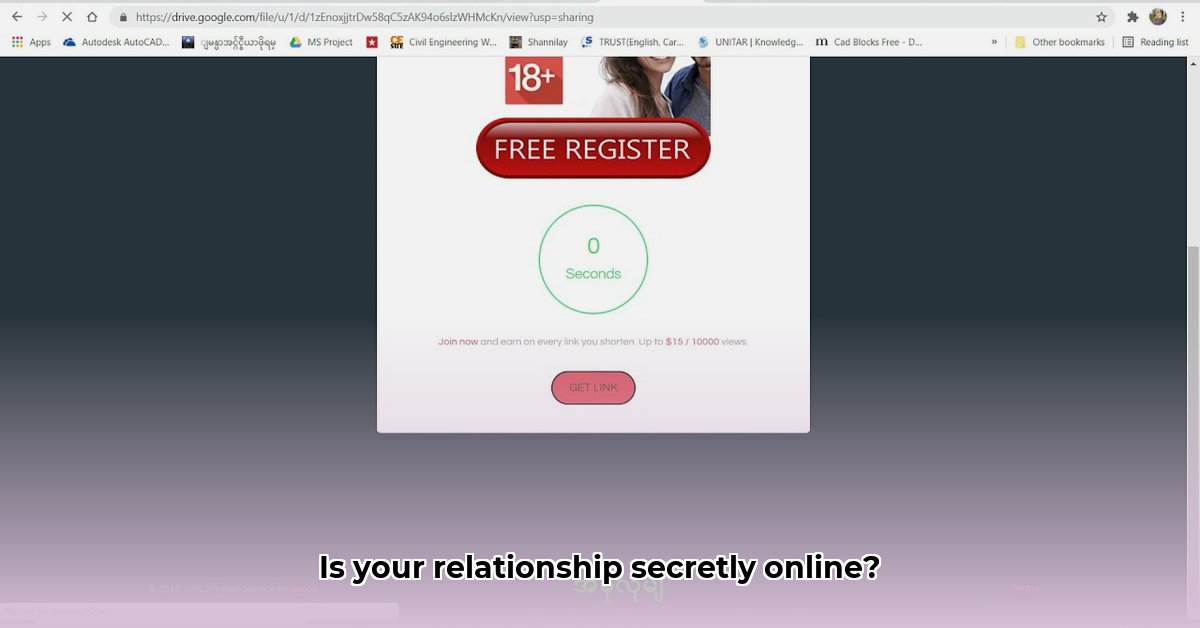
Discovering a file named "pghub.io" on your partner's device can feel devastating. This isn't just about a file; it's a breach of trust that shakes the foundation of your relationship. For further guidance on rebuilding trust after a betrayal, check out this helpful resource: Trust Building Techniques. This guide offers a compassionate yet practical approach to navigating this difficult situation, using the "pghub.io" incident as a case study to help you rebuild connection and strengthen your bond.
Understanding the Emotional Impact
The discovery of "pghub.io," with its suggestive name, immediately triggers a range of intense emotions. Betrayal, anger, confusion, and fear are all valid responses. Did you know that studies show a significant correlation between trust violations and heightened stress levels? Before you react, acknowledge these feelings. Suppressing them will only prolong the pain. Taking a moment to breathe and process your emotions is crucial before taking any action.
A Step-by-Step Guide to Navigating the Situation
This isn't about assigning blame; it's about understanding and rebuilding. Follow these steps to navigate the "pghub.io" situation and similar relationship challenges:
Step 1: Self-Care First: Before confronting your partner, prioritize your well-being. Talk to a trusted friend, family member, or therapist. This isn't weakness; it's self-preservation. Research shows that seeking support significantly reduces stress during relationship conflicts.
Step 2: Careful Investigation (Without Risk): Resist the urge to immediately open the "pghub.io" file. Opening unknown files can expose your devices to malware. Instead, consider using a reputable antivirus software to scan the file remotely or consult a cybersecurity professional for safe analysis.
Step 3: The Crucial Conversation: Once you've processed your emotions and gathered information, have a calm, open conversation with your partner. Use "I" statements to express your feelings (e.g., "I felt hurt and confused when I found this file"). Avoid accusations; aim for understanding. Effective communication, built on empathy, is crucial for resolving conflict.
Step 4: Focus on Behavior, Not Blame: Instead of focusing on assigning blame, try to understand the underlying behaviors. Were there communication issues? Were there unmet needs? Addressing these root causes is crucial for lasting change. Relationship experts frequently emphasize the importance of addressing the root causes of conflict rather than focusing solely on the event itself.
Step 5: Professional Guidance: Consider couples counseling or individual therapy. A therapist can provide a safe space to process emotions, improve communication, and learn healthy coping mechanisms. Studies consistently demonstrate the effectiveness of therapy in improving relationship satisfaction and conflict resolution.
Step 6: Rebuilding Trust (A Long-Term Process): Rebuilding trust takes time, patience, and consistent effort from both partners. It requires open communication, transparency, and a commitment to working through challenges together. Experts suggest that trust is akin to a delicate glass, easily broken and needing careful tending to repair.
Digital Trust: A Cornerstone of Healthy Relationships
The "pghub.io" incident highlights the importance of digital trust. This isn't about controlling your partner’s digital life but establishing open communication and mutual respect for boundaries. Think of digital trust as a fundamental aspect of overall relationship trust. A lack of it can lead to larger issues.
Key Takeaways:
- Prioritize self-care: Take care of your emotional and mental well-being throughout this process.
- Communicate calmly and honestly: Express your feelings without blame, focusing on "I" statements.
- Focus on behavior, not blame: Address the underlying causes of the issue.
- Seek professional help: A therapist or counselor can assist in communication and healing.
- Rebuild trust patiently: Rebuilding trust is a process that takes time and effort.
Remember, seeking professional help is a sign of strength, not weakness. Navigating relationship challenges is easier with support. You deserve to find a path to healing and a stronger, healthier relationship.